#domain registry
Explore tagged Tumblr posts
Text
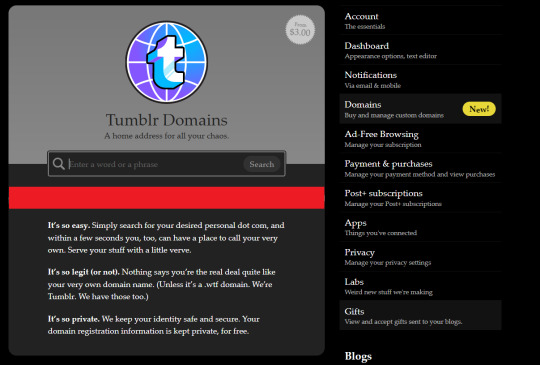
tumblrs really just throwing things at the wall now.
1 note
·
View note
Text
ONPASSIVE interview in English on the Egyptian TV channel Almasria
Here is interview at one of the main and premier Egyptian TV Channels “Almasria” Satellite TV, this channel is watched by hundreds of millions around the Arabic countries and around the world.The interview was with one of the ONPASSIVE executives, Mr. Ashraf Mofeed is the head of the OiMedia (AI + Media) Department. This is different than O-Media. Interview: All companies trying to get better…
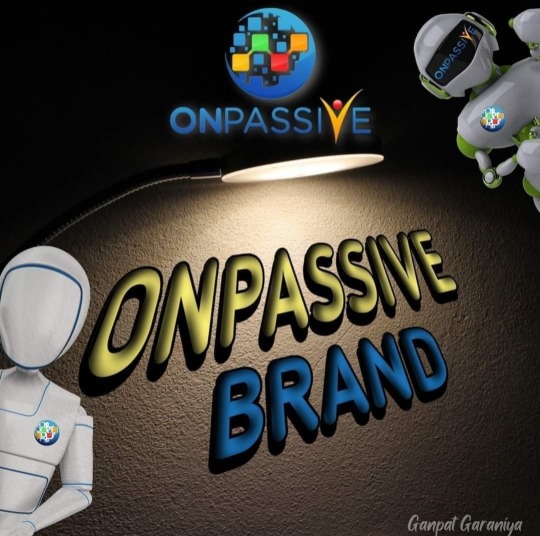
View On WordPress
#AI cloud computing#AI tools#almasria#artificial intelligence#Ashraf Mofeed#domain registry#egypt#egyptian#Gemini#iCANN#in english#interview#machines#media#Microsoft#multi-regions#OConnect#OiMedia#OMedia#ONPASSIVE#Open AI#robots#tv channel#Zoom
0 notes
Text








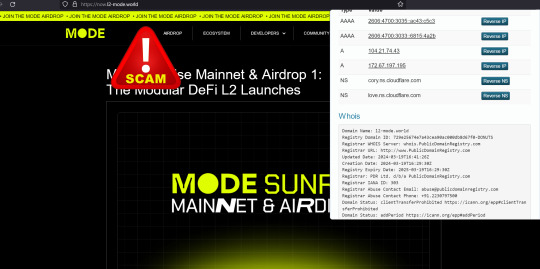
Scams MODE NETWORK
⚠ /web3.ohnowtf.com ☣ AS13335 [104.21.17.196] 🇺🇸
⚠ /mode-l2s.world ☣ AS13335 [172.67.174.90] 🇺🇸
⚠ /mode3ls.world ☣ AS13335 [188.114.96.3] 🇺🇸
⚠ /modes3.world ☣ AS13335 [188.114.96.3] 🇺🇸
⚠ /mode.airdropclaim.live/ ☣ AS13335 [104.21.78.90] 🇺🇸
⚠ /now.modes3l.world ☣ AS13335 [104.21.24.18] 🇺🇸
⚠ /modee2l.world ☣ AS13335 [104.21.24.18] 🇺🇸
⚠ /now.mode2ls.world ☣ AS13335 [104.21.54.178] 🇺🇸
⚠ /l2-mode.world ☣ AS13335 [172.67.197.195] 🇺🇸
Remember, the real website is https://www.mode.network/
All those other links are wallet drainer scams.
#mode network#scam#fake airdrop#twitter advertisements#phishing#fraud#crypto scam#crypto phishing#twitter#spoof#fake#spam#fastpanel#PDR#public domain registry
0 notes
Text
Happy Public Domain Day 2025 to all who celebrate
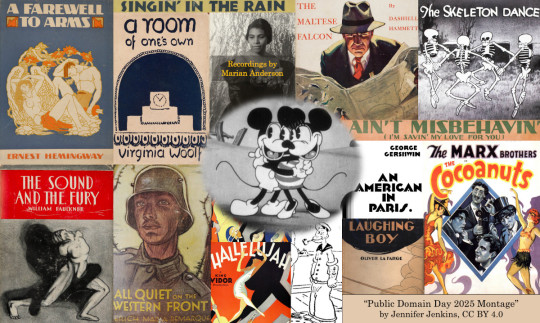
If you'd like an essay-formatted version of this post to read or share, here's a link to it on pluralistic.net, my surveillance-free, ad-free, tracker-free blog:
https://pluralistic.net/2024/12/17/dastar-dly-deeds/#roast-in-piss-sonny-bono

In 1976, Congress set fire to the country's libraries; in 1998, they did it again. Today, in 2024, the flames have died down, and out of the ashes a new public domain is growing. Happy Public Domain Day 2025 to all who celebrate!
For most of US history, copyright was something you had to ask for. To copyright a work, you'd send a copy to the Library of Congress and they'd issue you a copyright. Not only did that let you display a copyright mark on your work – so people would know they weren't allowed to copy it without your permission – but if anyone wanted to figure out who to ask in order to get permission to copy or adapt a work, they could just go look up the paperwork at the LoC.
In 1976, Congress amended the Copyright Act to eliminate the "formality" of copyright registration. Now, all creative works of human authorship were copyrighted "at the moment of fixation" – the instant you drew, typed, wrote, filmed, or recorded them. From a toddler's nursery-school finger-painting to a graffiti mural on a subway car, every creative act suddenly became an article of property.
But whose property? That was on you to figure out, before you could copy, publish, perform, or preserve the work, because without registration, permissions had to start with a scavenger hunt for the person who could grant it. Congress simultaneously enacted a massive expansion of property rights, while abolishing the title registry that spelled out who owned what. As though this wasn't enough, Congress reached back in time and plopped an extra 20 years' onto the copyrights of existing works, even ones whose authors were unknown and unlocatable.
For the next 20 years, creative workers, archivists, educators and fans struggled in the face of this regime of unknowable property rights. After decades of well-documented problems, Congress acted again: they made it worse.
In 1998, Congress passed the Sonny Bono Copyright Act, AKA the Mickey Mouse Preservation Act, AKA the Copyright Term Extension Act. The 1998 Act tacked another 20 years onto copyright terms, but not just for works that were still in copyright. At the insistence of Disney, Congress actually yanked works out of the public domain – works that had been anthologized, adapted and re-issued – and put them back into copyright for two more decades. Copyright stretched to the century-plus "life plus 70 years" term. Nothing entered the public domain for the next 20 years.
So many of my comrades in the fight for the public domain were certain that this would happen again in 2018. In 2010, e-book inventor and Project Gutenberg founder Michael S Hart and I got into a friendly email argument because he was positive that in 2018, Congress would set fire to the public domain again. When I insisted that there was no way this could happen given the public bitterness over the 1998 Act, he told me I was being naive, but said he hoped that I was right.
Michael didn't live to see it, but in 2019, the public domain opened again. It was an incredible day:
https://archive.org/details/ClosingKeynoteForGrandReopeningOfThePublicDomainCoryDoctorowAtInternetArchive
No one has done a better job of chronicling the fortunes of our fragile, beautiful, bounteous public domain than Jennifer Jenkins and James Boyle of Duke University's Center for the Study of the Public Domain. Every year from 2010-2019, Boyle and Jenkins chronicled the works that weren't entering the public domain because of the 1998 Act, making sure we knew what had been stolen from our cultural commons. In so many cases, these works disappeared before their copyrights expired, for example, the majority of silent films are lost forever.
Then, in 2019, Jenkins and Boyle got to start cataloging the works that were entering the public domain, most of them from 1923 (copyright is complicated, so not everything that entered the public domain in 2019 was from that year):
https://web.law.duke.edu/cspd/publicdomainday/2019/
Every year since, they've celebrated a new bumper crop. Last year, we got Mickey Mouse!
https://pluralistic.net/2023/12/15/mouse-liberation-front/#free-mickey
In addition to numerous other works – by Woolf, Hemingway, Doyle, Christie, Proust, Hesse, Milne, DuBois, Frost, Chaplin, Escher, and more:
https://pluralistic.net/2023/12/20/em-oh-you-ess-ee/#sexytimes
Now, 2024 was a fantastic year for the public domain, but – as you'll see in the 2025 edition of the Public Domain Day post – 2025 is even better:
https://web.law.duke.edu/cspd/publicdomainday/2025/
So what's entering the public domain this year? Well, for one thing, there's more of the stuff from last year, which makes sense: if Hemingway's first books entered the PD last year, then this year, we'll the books he wrote next (and this will continue every year until we catch up with Hemingway's tragic death).
There are some big hits from our returning champions, like Woolf's To the Lighthouse and A Farewell to Arms from Hemingway. Jenkins and Boyle call particular attention to one book: Faulkner's The Sound and the Fury, its title taken from a public domain work by Shakespeare. As they write, Faulkner spoke eloquently about the nature of posterity and culture:
[Humanity] is immortal, not because he alone among creatures has an inexhaustible voice, but because he has a soul, a spirit capable of compassion and sacrifice and endurance…The poet’s voice need not merely be the record of man, it can be one of the props, the pillars to help him endure and prevail.
The main attraction on last year's Public Domain Day was the entry of Steamboat Willie – the first Mickey Mouse cartoon – into the public domain. This year, we're getting a dozen new Mickey cartoons, including the first Mickey talkie:
https://en.wikipedia.org/wiki/Mickey_Mouse_(film_series)#1929
Those 12 shorts represent a kind of creative explosion for the Disney Studios. Those early Mickey cartoons were, each and every one, a hybrid of new copyrighted works and the public domain. The backbone of each Mickey short was a beloved, public domain song, with Mickey's motion synched to the beat (animators came to call this "mickey mousing"). In 1929, there was a huge crop of public domain music that anyone could use this way:
Blue Danube, Pop Goes the Weasel, Yankee Doodle, Here We Go Round the Mulberry Bush, Ach Du Lieber Augustin, Listen to the Mocking Bird, A-Hunting We Will Go, Dixie, The Girl I Left Behind Me, a tune known as the snake charmer song, Coming Thru the Rye, Mary Had a Little Lamb, Auld Lang Syne, Aloha ‘Oe, Turkey in the Straw, My Bonnie Lies Over the Ocean, Habanera and Toreador Song from Carmen, Lizst’s Hungarian Rhapsody No. 2, and Goodnight, Ladies.
These were recent compositions, songs that were written and popularized in the lifetimes of the parents and grandparents who took their kids to the movies to see Mickey shorts like "The Barn Dance," "The Opry House" and "The Jazz Fool." The ability to plunder this music at will was key to the success of Mickey Mouse and Disney. Think of all the Mickeys and Disneys we've lost by locking up the public domain for the past half-century!
This year, we're getting some outstanding new old music for our public domain. The complexities of copyright terms mean that compositions from 1929 are entering the public domain, but we're only getting recordings from 1924. 1924's outstanding recordings include:
George Gershwin performing Rhapsody in Blue, Jelly Roll Morton playing Shreveport Stomp, and an early recording from contralto and civil rights icon Marian Anderson, who is famous for her 1939 performance to an integrated audience of over 75,000 people at the Lincoln Memorial. Anderson’s 1924 recording is of the spiritual Nobody Knows the Trouble I’ve Seen.
While the compositions include Singin' in the Rain, Ain't Misbehavin', An American in Paris, Bolero, (What Did I Do to Be So) Black and Blue, Tiptoe Through the Tulips, Happy Days Are Here Again, What Is This Thing Called, Love?, Am I Blue? and many, many more.
On the art front, we're getting Salvador Dali's earliest surrealist masterpieces, like Illumined Pleasures, The Accommodations of Desire, and The Great Masturbator. Dali's contemporaries are not so lucky: after a century, the early history of the works of Magritte are so muddy that it's impossible to say whether they are in or out of copyright.
But there's plenty of art with clearer provenance that we can welcome into the public domain this year, most notably, Popeye and Tintin. As the first Popeye and Tintin comics go PD, so too do those characters.
The idea that a fictional character can have a copyright separate from the stories they appear in is relatively new, and it's weird and very stupid. Courts have found that the Batmobile is a copyrightable character (Batman won't enter the public domain until 2035).
Copyright for characters is such a muddy, gross, weird idea. The clearest example of how stupid this gets comes from Sherlock Holmes, whose canon spans many years. The Doyle estate – a rent-seeking copyright troll – claimed that Holmes wouldn't enter the public domain until every Holmes story was in the public domain (that's this year, incidentally!).
This didn't fly, so their next gambit was to claim copyright over those aspects of Holmes's character that were developed later in the stories. For example, they claimed that Holmes didn't show compassion until the later stories, and, on that basis, sued the creators of the Enola Holmes TV show for depicting a gender-swapped Sherlock who wasn't a total dick:
https://www.theguardian.com/books/2020/dec/22/lawsuit-copyright-warmer-sherlock-holmes-dismissed-enola-holmes
As the Enola lawyers pointed out in their briefs, this was tantamount to a copyright over emotions: "Copyright law does not allow the ownership of generic concepts like warmth, kindness, empathy, or respect, even as expressed by a public domain character – which, of course, belongs to the public, not plaintiff."
When Mickey entered the public domain last year, Jenkins did an excellent deep dive into which aspects of Mickey's character and design emerged when:
https://web.law.duke.edu/cspd/mickey/
Jenkins uses this year's entry of Tintin and Popeye into the public domain to further explore the subject of proprietary characters.
Even though copyright extends to characters, it only covers the "copyrightable" parts of those characters. As the Enola lawyers wrote, the generic character traits (their age, emotional vibe, etc) are not protected. Neither is anything "trivial" or "minuscule" – for example, if a cartoonist makes a minor alteration to the way a character's pupils or eyes are drawn, that's a minor detail, not a copyrightable element.
The biggest impediment to using public domain characters isn't copyright, it's trademark. Trademark is very different from copyright: foundationally, trademark is the right to protect your customers from being deceived by your competitors. Coke can use trademark to stop Pepsi from selling its sugary drinks in Coke cans – not because it owns the word "Coke" or the Coke logo, but because it has been deputized to protect Coke drinkers from being tricked into buying not-Coke, thinking that they're getting the true Black Waters of American Imperialism.
Companies claim trademarks over cartoon characters all the time, and license those trademarks on food, clothing, toys, and more (remember Popeye candy cigarettes?).
Indeed, Hearst Holdings claims a trademark over Popeye in many traditional categories, like cartoons, amusement parks, ads and clothes. They're also in the midst of applying for a Popeye NFT trademark (lol).
Does that mean you can't use Popeye in any of those ways? Nope! All you need to do is prominently mention that your use of Popeye is unofficial, not associated with Hearst, and dispel any chance of confusion. A unanimous Supreme Court decision (in Dastar) affirm your right to do so. You can also use Popeye in the title of your unauthorized Popeye comic, thanks to a case called Rogers v Grimaldi.
This all applies to Tintin, too – a big deal, given that Tintin is managed by a notorious copyright bully who delights in cruelly terrorizing fan artists. Tintin is joined in the public domain by Buck Rogers, another old-timey character whose owners are scumbag rent-seekers.
Congress buried the public domain alive in 1976, and dumped a load of gravel over its grave in 1998, but miraculously, we've managed to exhume the PD, and it has been revived and is showing signs of rude health.
2024 saw the blockbuster film adaptation of Wicked, based on the public domain Oz books. It also saw the publication of James, a celebrated retelling of Twain's Huck Finn from the perspective of Huck's enslaved sidekick.
This is completely normal. It's how art was made since time immemorial. The 40 year experiment in life without a public domain is at an end, and not a minute too soon.
You can piece together a complete-as-possible list of 2025's public domain (including the Marx Brothers' Cocoanuts, Disney's Skeleton Dance, and Del Ruth's Gold Diggers of Broadway) here:
https://onlinebooks.library.upenn.edu/cce/
#jennifer jenkins#duke center for the public domain#public domain day#trademark#tintin#popeye#copyfight#copyright#roast in piss sonny bono#james boyle#marx brothers#mickey mouse#ravel#bolero#faulkner#hemingway#virginia woolf#steinbeck#skeleton dance#gold diggers of broadway#dali#wicked
4K notes
·
View notes
Text
.ing Domains ab dem 5. Dezember 2023
Ich habe gerade mitbekommen, dass “Google Registry” (Expanding the Online Frontier) ab dem 5. Dezember diesen Jahren die Einführungen einer neuen Top-Level-Domain plant. Diese soll auf .ing enden und damit möchte das Unternehmen ermöglichen, dass das Tätigkeitsgebiet besser vermittelt werden kann. Canva hat zum Beispiel schon dir draw.ing und design.ing – und die bank.ing gehört der ING Bank.…
View On WordPress
0 notes
Text
bruh people ID'd the estrolabs person it's a known neo-nazi
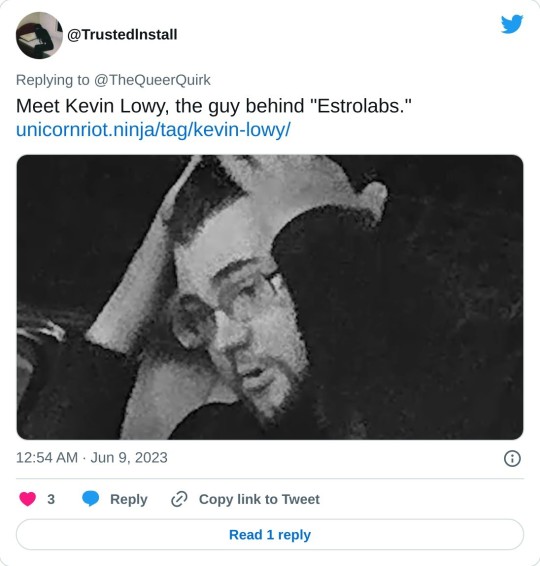
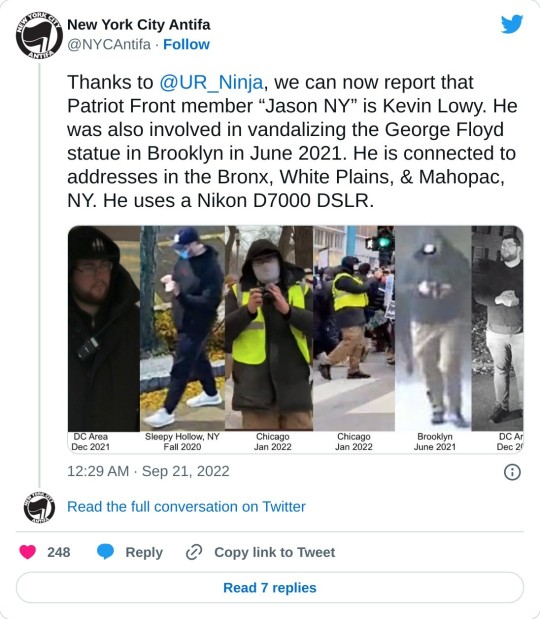
People figured it out by matching domain registry stuff and the fact that his name was connected to the paypal account being used on his site
17K notes
·
View notes
Text
A helpful post about dying in a sword fight for all my fantasy writing folks.
#sword fighting#writing#writers#writers on tumblr#writing community#writerscommunity#writer things#writerslife#novel writing#writing tips#writers and readers#writing advice#writing resources#writing help#how to write#writing tools
2K notes
·
View notes
Text
Hera: Introductory post
Ἡρη [Juno] Goddess of Marriage and the Sky ; Queen of the Gods

Epithets: ⟡ Gamelia - Of marriage ⟡ Zugia - Yoked ⟡ Akraie - Of the Heights ⟡ Alexandros - Protector of Men ⟡ Basileia - Queen ⟡ Leukolenos - White Armed ⟡ Boopis - Cow-eyed ⟡ Khrysothronos - Of the Golden Throne ⟡ Makaira - Happy
Domains: ⟡ Marriage ⟡ Fertility ⟡ Childbirth ⟡ Heirs ⟡ kings and empires ⟡ Women ⟡ Family ⟡ The sky ⟡ The stars ⟡ Heaven Devotional acts: ⟡ Listen to a devotional playlist ⟡ wear green or blue or yellow or- ⟡ Dairy products from the farm if you're able (im from kentucky theyre everywhere) ⟡ Buy wedding registry gifts ⟡ Be loyal

Associations
Symbol(s): ⟡ Lotus-staff ; Throne ; Diadem Element: ⟡ Earth Color: ⟡ Gold ; Silver ; White ; purple ; blue ; green
Metal: ⟡ None known but I feel like she really likes silver metals Crystal & Stone: ⟡ Amethyst ; Pearl ; Sapphire ; Turquoise ; quartz Animal: ⟡ Hawk ⟡ Peacock ⟡ Lion ⟡ Heifer ⟡ Cuckoo ⟡ Crane Plants: ⟡ Pomegrante ⟡ Lotus ⟡ Willow ⟡ Apple Food & Drinks: ⟡ Red Wine ⟡ Olive Oil ⟡ Water ⟡ Fruit ⟡ honey ⟡ Milk ⟡ Grains ⟡ Chocolate ⟡ Pomegrantes ⟡ Apples Planet: ⟡ Venus Tarot: ⟡ The Empress ; The World
#witchblr#deity worship#greek gods#hellenic worship#deities#hellenism#hellenic polytheism#hellenic deities#hera deity#hera devotee#hera#hera goddess#greek goddess
326 notes
·
View notes
Text
If You Want An ACTUAL 'Feminist Icon' Man With Depth, Then Ares Is Your Best Candidate (NOT Hades!)
He has been SEVERELY misrepresented. Wonder Woman, Percy Jackson, DC Comics ... why didn't God of War use Ares instead of Kratos who is just one of Zeus' lieutenants?
(Don't get too excited just yet, it's still a pretty low bar.)
1) Ares is quite literally the ONLY Greek God (sitting on the Twelve Olympians) who doesn't need to be put on an sex offender registry. (I won't speak for his Roman counterpart, Mars, however ...) The worst he ever did, was seduce Phylonome, an hunting companion of Artemis, in the guise of an shepherd. That's hardly comparable to Zeus seducing Callisto in the guise of Artemis, or Alkmene in the guise of her husband Amphitryon, or Poseidon seducing Tyro in the guise of the river-God Enicepus.
That's right, the 'sacker of cities' isn't a rapist himself. (If you don't like irony, then Greek mythology isn't for you.)
2) Not only is Ares the only one who isn't a rapist, but he has actually stood up for sexual assault survivors more than once (even if they're his mother or daughter!) Ares was famously tried (and acquitted!) for homicide by a jury of the Twelve Olympians, after he slew Poseidon's son for raping his daughter. In one version of the myth, he was found guilty and forced to serve among mortals (which was the same sentence Zeus gave Poseidon and Apollo for conspiring against him). The implication is that all the Goddesses voted to acquit, all the Gods voted to convict, and what with Poseidon as prosecutor, Zeus as judge, and Ares as defendant, there were more goddesses on the jury than gods. Even if Zeus cast his vote to convict, it would have come to a tie and the rule was that the defendant is to be acquitted if there is a tie. (This is what occurred in The Oresteia, the setting of which was also the Areopagus.) When two giant sons stormed Olympus with the intention of taking Hera and Artemis, Ares was trapped by them in a jar, and the implication was because he was defending his mother and he was only a child at the time. He was also present at the punishment of Ixion who attempted to violate Hera, alongside Athena and Hermes.
3) Ares is the father of the Amazons (you hear that, DC Comics?) The founder of the Amazons, Otrera (who, btw, is the mythological founder of the Temple of Artemis at Ephesus), is either his daughter with the wood-nymph Harmonia, or his consort (if she is the daughter of Eurus, God of the North Winds) by whom he fathered Melanippe, Antiope, Hippolyta, and Penthesilea. Their nation's capital city is named Themiskyra in honour of Themis (Zeus' second wife and his aunt by whom he fathered three daughters), whom Ares is on surprisingly close terms with (see the Homeric Hymn to Ares), since he was also the patron god of the law enforcement.
4) One of Ares' epithets is 'feasted by women', in the ancient city of Tegea in Arcadia; during a war between the Tegeans and the Spartans, the women of Tegea defended the city from an invasion led by the Spartan king Charilaus.
5) Women abused by their husbands, as I've read online (but cannot verify), would have likely prayed to Ares for the strength to survive, which makes sense since he is the God of Courage (who else would they have prayed to?), which may have (sadly) further contributed to his unpopularity in Ancient Greece. Likely women also prayed that their abusive husbands would die violently on the battlefield in the next war ... He is, after all, the 'slayer of men'. It's not any different from how mothers would pray to Demeter to bring their daughters back alive, or unmarried girls would pray to Artemis to escape an unwanted marriage ... There's no 'protector of women in Greek mythology' because the Hellenistic religion worked through power bargains with the Gods and their respective domains ...
6) Aphrodite was forced into a marriage with Hephaestus in exchange for Hera's release (Hephaestus initially sued for the hand of Athena which ... didn't work out; see Erichthonius for more detail), Aphrodite expected that she would marry Ares. (They may or may not have been sleeping together before since Dionysus is the one who got Hephaestus drunk enough to do it ... Dionysus is the son of Semele, daughter of Harmonia, Ares and Aphrodite's daughter ... or maybe it's just the wonky timeline in Greek mythology ... ) Love and War. Their children are Eros (the literal Cupid himself) and Anteros (Unrequited Love), Phobos (Fear), Deimos (Panic), and Harmonia (Harmony). They have an open marriage (they are often acknowledged as each other's consort in mythology), despite Ares killing Adonis as a boar (although one version has Artemis killing Adonis as revenge for Hippolytus) and Aphrodite cursing Eos with insatiable lust. Spartans gave Aphrodite the epithet of 'Areia' (similar to how Zeus has the epithet of 'Heraion'). Note how Ares and Aphrodite are the only official couple, whether they're depicted as married or otherwise, on the Twelve Olympians (following her divorce from Hephaestus) besides Zeus and Hera themselves, which brings me to my next point ...
7) Even though Ares was not worshipped by many Ancient Greeks (just as they didn't feel comfortable even mentioning Hades by name), he was always depicted as an handsome soldier, which was the peak of male attractiveness at the time. Legally, he would have been considered as the 'legitimate' heir to the throne of Olympus as the only 'true' son of Zeus and Hera (since Hephaestus was conceived via parthenogenesis), given how the Ancient Greeks projected their own sociocultural norms onto their Gods. He is also one of the most handsome of Zeus' sons (along with Apollo, Hermes, and Dionysus). Bizarrely, he could almost be considered as Ancient Greece's cultural equivalent of Prince Charming in a roundabout way.
8) Ares is the son of Hera (the Goddess of Marriage, Family, and Childbirth, Patron of Women and Queen of Olympus) and the husband of Aphrodite (Goddess of Love and Beauty; Lust and Sexuality; Desire and Pleasure). He is also the rival to his half-sister Athena (Goddess of Wisdom and Reason; Strategy and Warfare; Arts and Crafts) for his father's affections, and shares jurisdiction with his half-sister Artemis over the Amazons. He's also on good terms with his grand-aunt, Themis, and I would assume his aunt Hestia. Zeus and Hera's other children are all daughters (Enyo, Eileithyia, Hebe, Angelos, Arge, Eleuthera), and a part of Zeus is concerned that Ares would overthrow him (more on that in another day, for another post). It's not hard to see why Ares drinks the Respect Women Juice unlike his father, uncles, or brothers.
9) People often use Ares persecuting a pregnant Leto at Hera's orders against him, disregarding that Hera is not only his mother but the Queen of Olympus. Even then, he never did anything more than deny her entrance to cities. The entirety of Ancient Greece itself was under orders to deny Leto sanctuary, and so are you really going to fault Ares for it? ZEUS didn't even hold it against Ares, even though he's his least favourite and Leto is his favourite woman ...
9) Ancient Greek mythology is largely passed through Athens, and they associated Ares with foreigners such as the Thracians (Thrace is said to be the God's birthplace) whom they regarded as stupid, uncivilized barbarians (see 6). His respecting women is likely meant to be seen as a negative trait, and highly correlated with how Ares was seen in general (see 3).
Note: I am NOT calling Ares an 'feminist icon' man, I'm just saying that he is the best possible candidate in Greek mythology.
109 notes
·
View notes
Text
It is interesting how misinformation proliferates. Wikipedia says Plan 9 from Outer Space is public domain but i can find no evidence of it. Looking it up in the copyright registry it appears to have been renewed in 1983. Meaning it is in copyright until 2053 but everyone seems to accept it as public domain
source
The weird thing is, like the rights holder Reynolds Pictures doesnt appear to be active and things like the comics and the 2015 remake were done seemingly without any involvement with them and the full movie is up on youtube and wikipedia without protest from anyone.
So this may be a case of an "Orphan Work" where the rights holder is either not really known or doesn't seem to care.
35 notes
·
View notes
Text
Some bad news afoot. The creator of the 2007 adaptation of flatland, Ladd Ehlinger (Often known as FilmLadd on twitter and Tumblr), is a transphobe and has made several adverts for conservative campaigns, one of which compared the shared access to healthcare to slavery.

[ID: A screenshot of a tweet by Erin Reed / Erininthemorn that reads, "A new bill in Missouri would put teachers on the sex offense registry if they 'contribute to social transition' of a trans youth. Including pronouns, haircuts, information, and more. It would make a teacher 'contributing to social transition' a class E felony." FilmLadd replies on March 2nd, "Sounds like a great idea". End ID.]
Another user made a post that goes into more detail about the sorts of ads he's made, as well as his behaviour. I'm not the best person when it comes to explaining things so please to read it's post and share it around.
Best course of action? Inform others, Block FilmLadd and downvote the original youtube upload. Besides, i've heard that the books tackles a lot of societal issues that were completely forgotten about in the film; classism, sexism and ablesism, etc. The film is fun, but perhaps we could make out own spin on it (unique character designs and all) It is public domain after all.
30 notes
·
View notes
Text
One of the things I think people as a whole don't understand about the internet today is that so much of what's wrong/dangerous/flawed about the internet exists because so much of the internet started as one person's hobby they built in their spare time or as a specific task for a specific function that was just useful/functional enough that literally everyone started using it. There's tons of biases built into the modern internet and some of that is carelessness but a lot of it is... just like. This was invented by a group of grad students fucking around for a few weeks. How the fuck were they supposed to know it'd be become the global standard and that nobody would bother to address or change these things?
Like, the whole reason that the US government gets the ".gov" domain name is because this entire system was invented in the US primarily for use in universities. Under the original system, you had to phone in to talk to the center who owned the list, tell them what name you wanted and then a person would type your name/ip onto the list attached to a nickname much like a phonebook. Then people slowly figured out domains and maintaining domain registries. And then the system became useful enough that more of the US started using it, and then people realized "oh shit, other countries want to use this too, guess we need to figure that out".
The "world wide web" or the thing we all know as the internet (and the reason that every website you visit has www in front), was invented originally by one dude trying to make his own job easier (Tim Berners-Lee). He thought it was pretty cool and shared it, and he was one guy who only spoke English and was just doing what he thought was going to work.
Like, this is a very lighthearted article talking about him, but I think it illustrates the point really well,
Sir Tim Berners-Lee, the creator of the World Wide Web, has confessed that the // in a web address were actually "unnecessary". He told the Times newspaper that he could easily have designed URLs not to have the forward slashes. "There you go, it seemed like a good idea at the time," he said. He admitted that when he devised the web, almost 20 years ago, he had no idea that the forward slashes in every web address would cause "so much hassle". His light-hearted apology even had a green angle as he accepted that having to add // to every address had wasted time, printing and paper.
via "sorry for the slashs"
We have an entire internet and infrastructure built rather haphazardly but also in such a way that going back and trying to change or fix things either requires an insane amount of work or could render vast swaths of the prior internet inaccessible.
Like, I think everyone here remembers Flash getting shut down and how much of childhood games got wiped off the generally accessible internet and relegated to projects like Flashpoint. It was really hard to see, but Flash was also a project started in 1996 (or 1993 if you count the OG version that turned into flash) that was supposed to be for a limited set of use cases, and not the medium on which major parts of the internet would run. By the time Adobe shut it down, Flash was incredibly dangerous with the constant risks of malware, it was buggy, slow, and there were a million better programs. It had to be killed to make way for better things, but because of how the internet was built, that death came at a pretty high cost.
So if you're ever wondering why it feels like the web is a bunch of dominoes ready to fall down at any time, it's because it is. And it does. And so many people spend so much of their time combating all the problems created by using systems that were never intended to handle everything they are currently handling because the alternative is a task of monstrous undertaking that would almost certainly turn decades of history to dust.
#sif speaks#internet culture#internet security#idk I just like#see people talking about the internet in such a way that shows they do not understand it#like I'm pretty sure the vast majority of people these days could not describe the difference between the internet and#www#and like#that says a lot
62 notes
·
View notes
Text
The 2024 National Film Registry submissions have finally been announced. From what I’ve seen of the list, it seems we’ve reached the end of a long string of annual animated movie representation. But this year, they added a Koko the Clown cartoon. He was one of the last major early cartoon characters I was expecting, but I’m kinda glad he’s here now. Out of the Inkwell is a brilliant and imaginative series in its own right, and the short they picked, Koko’s Earth Control, is no exception. It’s public domain, so check it out wherever and however you can.

8 notes
·
View notes
Text
Another Internet Whitepaper
I'm just gonna get into there is no way to preface this.
1) content should be hosted in their own countries for which they are meant.
2) therefore the website should split into Nation->Sub-nation sections. So things for Michigan would be closer to those in Michigan. With U.S.->Michigan.
--"independent" Nations are just gonna have to deal with being lumped together into a united region. It's simply physics.
--country wide servers and clouds, and worldwide services will still be available; but we need to develop protocols to make it easier to distribute data and declutter the internet-cloud.
3) a separate Intranet for official use and security will need to be developed alongside this while also being completely disconnected from the worldwideweb.
4) Splits;
IP Addresses redesign;
[Country/Region]:[State/Province]:[individual]
[Individual] will need to be controlled by local The Internet Assigned Numbers Authority (IANA) branches; likely to be reassigned to DMVs and SoSs.
5) Separate protocols For;
Streaming Services
Social Media Services
Bidirectional Interactions (like games and Virtual Machines)
Pornography needs to be completely identifiable by textual Web address.
5) you local region will be defaulted, but can be changed by the browser and not be hard-wired in.
Not indicating a region will automatically default to the local internet.
So typing in FBI.GOV in the U.S. will lead to the FBI website, and if you type it in the UK it'll lead to Mi:5 or something.
6) Social Media protocols will have to be integrated with the E-Mail SMTP protocols. Which will encourage a more decentralized internet. This will *also* have to find a way to work with phone text messages.
7) Cable TV and Streaming services will have to use the same protocols.
8) Because there's phone integration here; a phone number may have to be closer to a social security number going forward. Which will both be bad for animosity, but allow for people to not need login information.
-- This will technically also need to apply to your House; which will have to have an assigned street address.
9) all of these need to be obfuscated to casual observers.
10) this will deprecate our phone companies and require them to work with cable TV and internet companies in order to create more equitable protocols.
11) the current IP address and Domain Registry systems need to be deprecated; as it does not suit its original purpose.
[.xxx] will be assigned for all "adult" materials and be required for ALL "adult materials" posted online.
[.app] will be assigned for appstores.
[.store] for marketplaces like Amazon, eBay, and whatever else.
[.bank] will be for banking and credit purposes
[.social] will be for social media
[.stream] will be for streaming materials,
[.np] for non-profit use only.
[.donation] for donation collections and Kickstarter like services.
[.pay] for payment services like PayPal
Non "adult materials" can be streamed through other "front ends" .
13) These human readable extensions will be simplified on the backend to reduce the total data envelope size.
14) single digit ip-adresses will have to be regulated for use for high-capacity uses. These will need to be "extended" protocols that different services can use.
This will help even out everybody's data envelopes. This will have to be part of a cloud service that can be used by anybody that needs it. With certain restrictions that are deemed necessary by local and federal governments and international treaty reasons.
15) limits on how algorithms and "bots" can ping anything at one time need to be addressed or regulated.
This will be a massive undertaking with the cooperation of all the other governments around the world.
And will be a very lucrative endeavor at the end of it all.
This is just an outline to describe the form the future internet should take and can be changed or modified as required; especially for things I cannot see.
The current corporations will be expected to develop a plan of actions in tandem with current regulatory authorities; failure to do so will create a need for an ultimatum, which we all wish to avoid.
We're also going to need to find ways to encourage competition in these sectors so that they can be upgraded and modified as needed by local areas instead of waiting on these companies to bother with it.
13 notes
·
View notes
Text
From the beginning | Previously | Coin standings | 60/70 | 40/40
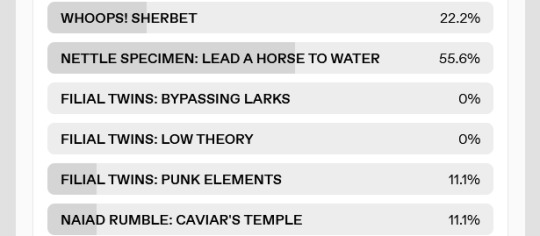

Adea will thank you to remember that this is her pathetic wet cat, thank you very much. Who among us has not seen a man have a seizure from eating a weird bug he found on the ground, and decided to marry him on the spot? Sometimes you just see a tiny insane philosophy professor in a sweater vest who would die if you didn't protect him, and nature takes over! He's scrunkly, okay? Shut up!
It once again falls to her to save her husband from the results of a sudden fit of gap moe, but she came prepared. She's got those DEVELOPER TOOLS, which, if she understands correctly, are like a technology thing that will tell you what's wrong with someone.
She pokes him with the needle, and...
Error: global entity index not found. No source record was retrieved. Deferring to local entity registry lookup. Error: floating process ID found for local entity "Walter Rehoots", but integrity checksum for "Walter Rehoots" failed. Access to insecure resource blocked. Examine insecure data with "oldtroopsleeve 'Walter Rehoots' --unsafe --pretty-print-source".
What the hell? What does any of that mean? Is this thing broken, or is something more wrong with him than she thought?
...She tests it on herself, and gets the exact same error message, except with her own name. Okay. Uh. Examine insecure data with... what, is it this button? Now she's seeing... just a load of incomprehensible computer nonsense. There's some stuff that's legible, though...
So, you're both "local entities", and have IDs for your names, but there's something called a checksum that isn't working. Maybe you need to get your checksums fixed? Do they make a cream for that?
There's a warning about "excessive data duplication" and "insecure defaults" that doesn't make much sense.
Okay, here's something- an age timestamp. He's... 45?! No, wait, what the- he was 30, last you checked. And- what the hell, you're 43?! No no no no no. That's not true. This thing's broken.
You've got these weird little labels on you with a flower icon next to them- you're labeled "ROBUST LONERS" and he's labeled "SORROW TO LEGS", which doesn't tell you much. Is he catatonic because his legs are sad???
There's a thing in your data called an ARCADE COOKING KIT, which apparently expired a few hours ago. Says here it denied over a thousand requests because they were from the wrong domain. Does this have anything to do with where you woke up?
Walter is "COAL-IMBUED" and you're "ACIDIC PIRATE", which is weird because he's always been big on green energy, and Talk Like A Pirate Day was yesterday.
You... don't find anything useful vis-a-vis snapping him out of this weird signal stabilizer fugue he put himself in, though. He seems... fine, except for all the mysterious crap that's not fine that you can't make heads or tails of. This thing is useless!
Walter interrupts to remind you that she's dead, she's dead, it's all pointless- and you flick him in the head. She's not dead, you tell him- and he says he saw it, saw her corpse being dragged away. You flick him in the head again and ask how and when he saw it, and whether he's sure he wasn't just seeing things.
This gets him quiet, but the kind of quiet where he's thinking. That philosophy brain, asking nerd questions like "why do I believe what I believe".
Both of you, actually, have been very obviously hallucinating a lot of crazy shit this entire time. Like, constantly. Just because he saw his DEAD DAUGHTER doesn't mean she's dead- maybe he was just thinking about how he TRUDGED AHEAD or whatever. You can't give up just because you had a mysterious vision. You are both objectively crazy people right now. It makes no sense to abandon all hope before you've had the chance to, like, get to a hospital and get medical care!
Walter sits there thinking for a couple solid minutes, which you let him do, and then he gets to his feet and wordlessly hugs you tight.
Alright. Okay. What now?
Continued | 60/70 | 39/39
17 notes
·
View notes
Text
more news with file garden!


[File Garden @filegarden.com - 19h
No response yet, but I completed a domain transfer from Cloudflare to Porkbun and can now begin restoring the domain's functionality. We relied on Cloudflare for some of our infrastructure, so replacing that may take some time. Rest assured that all will be restored. Thank you for your support. :)]
[File Garden @filegarden.com -2.5h
The domain is still inaccessible on Porkbun's DNS, so Cloudflare likely misunderstood the situation and was wrong to take blame (fortunately). The issue is likely on the .garden registry's end instead (unfortunately), which is owned by GoDaddy. I contacted GoDaddy and Porkbun and will update you.]
situation upd8s!!! (list below upd8ed over time)
upd8 1 + meme
upd8 1 + mspfa alternative
upd8 3
5 notes
·
View notes